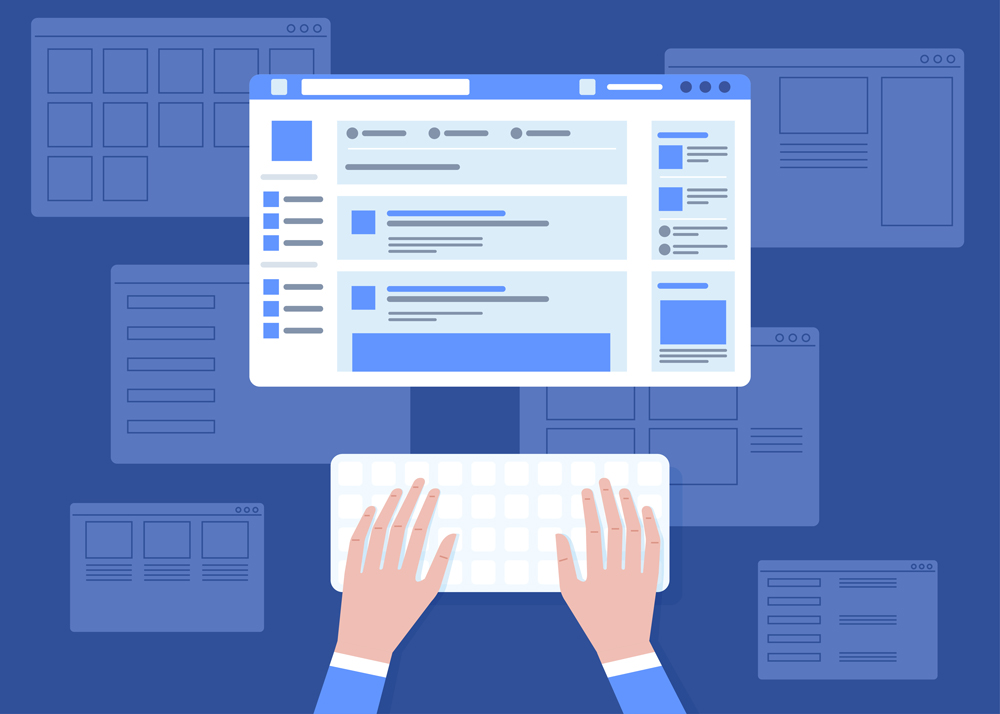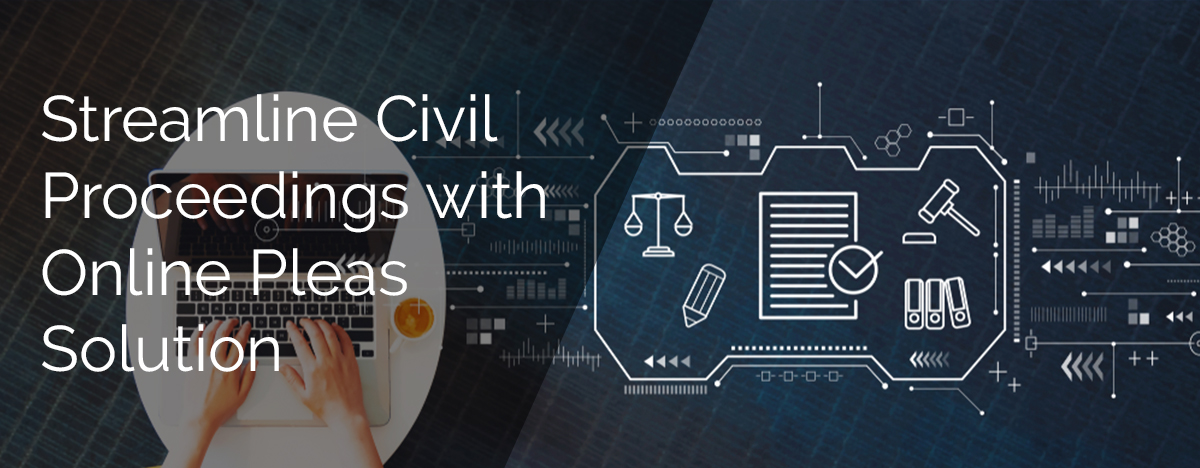[av_image src=’https://home.ncourt.com/wp-content/uploads/2020/01/online-pleas-solution.jpg’ attachment=’3903′ attachment_size=’full’ align=’center’ styling=” hover=” link=” target=” caption=” font_size=” appearance=” overlay_opacity=’0.4′ overlay_color=’#000000′ overlay_text_color=’#ffffff’ copyright=” animation=’no-animation’ av_uid=’av-5uib5t’ admin_preview_bg=”][/av_image]
[av_textblock size=” font_color=” color=” av-medium-font-size=” av-small-font-size=” av-mini-font-size=” av_uid=’av-4hdu1d’ admin_preview_bg=”]
Contrary to what some may believe, there is greater demand than ever for online access to local courts. According to a study by the National Center for State Courts (NCSC), over 80% of citizen respondents said that having the ability to manage cases and connect with court staff online would improve their experience. Court staff are similarly known to want online tools that alleviate some of the stress of their work.
Those citizens and clerks are getting what they want, thanks to an emerging solution called online dispute resolution (ODR) that uses technology to reach agreements. ODR technology can streamline administrative and judicial workflows, as well as facilitate payment processing. But what makes ODR better than traditional methods of dispute resolution?
What is online dispute resolution?
The development of ODR technology pulls from existing methods of alternative dispute resolution (ADR) and transposes them to a fully digital space. Through mediation, negotiation, and/or arbitration, citizens can settle disputes with each other or with the court in a way that serves all parties effectively and painlessly. ODR platforms frequently employ asynchronous communication tools and online portals that also enable citizens to pursue justice outside of business hours.
While ODR can be implemented differently from region to region, it is known to be most effective at resolving small-scale disputes and “inconvenient” infractions, such as traffic citations. However, ODR can also be used to resolve property, taxation, and domestic relations cases; much of its value comes from the fact that it can be applied to multiple judicial settings. By allowing citizens to serve themselves, ODR technology streamlines the court process and reduces the strain on court resources.

nCourt’s Online Pleas Solution
nCourt brought ODR technology to the public in the form of its innovative Online Pleas Solution (OPS). The nCourt OPS enables citizens to work with the courts that serve them from anywhere at any time and helps them resolve their cases reliably and easily.
With nCourt’s OPS, courts and citizens alike enjoy a range of features, including:
- Negotiation of domestic relations cases — Citizens can negotiate pre-decree cases (such as divorce or child support) as well as post-decree cases online with or without the help of the court or a third-party mediator.
- Secure and private payments — Citizens can resolve outstanding fees with confidence that their data is protected.
- Quick resolution of traffic and misdemeanor cases — Citizens can see their minor infractions resolved painlessly, from parking tickets to city ordinance violations.
- Warrant and amnesty management — Citizens can track, prevent, and resolve failure-to-comply warrants; courts can also extend amnesties with the click of a mouse.
- Civil claims resolution — Courts can use the solution to resolve small-claims, landlord-tenant, civil debt, and other cases; citizens can work with the court with or without the involvement of a mediator.
Benefits of OPS — “Virtual Court in a Box”
Virtual mediation has far-reaching benefits, one of which is streamlining administrative and judicial dispute workflows. OPS is a “Virtual Court in a Box” — it changes the paradigm between court representative and citizen, empowering citizens to take a more active role in their interactions with the court which promotes a willingness to pay and resolve matter quickly.
Today’s citizens are tech savvy and expect self-service options to engage with service providers. OPS supports this desire and satisfies the demand. In fact, by offering citizens a self-service option to resolve small-scale disputes (e.g., traffic citation), citizens can settle fines from anywhere, even outside of business hours, and communicate with court staff privately.
Additionally, OPS helps the court shorten lines and reduce the time needed to close cases. Robust functionality allows clerks to spend less time manually processing payments for minor infractions and decreases the need for law enforcement officers to track down late payments.
OPS presents a wide range of benefits for both court staff and citizens. ODR platforms such as nCourt’s OPS take advantage of the latest technology to expedite the processing and resolution of most minor infractions. By bearing the bulk of the administrative load, this solution relieves the pressure on administrative staff and equips them to do what they do best — bringing procedural justice to every citizen.
[/av_textblock]
[av_social_share title=’Share this entry’ style=’minimal’ buttons=” custom_class=” av_uid=’av-7vuup’]
[av_image src=’https://home.ncourt.com/wp-content/uploads/2017/05/cms-integration-benefits-833-v2.jpg’ attachment=’3220′ attachment_size=’full’ align=’center’ styling=” hover=” link=” target=” caption=” font_size=” appearance=” overlay_opacity=’0.4′ overlay_color=’#000000′ overlay_text_color=’#ffffff’ animation=’no-animation’ custom_class=” av_uid=’av-2ouvp2′][/av_image]













